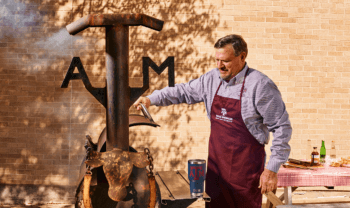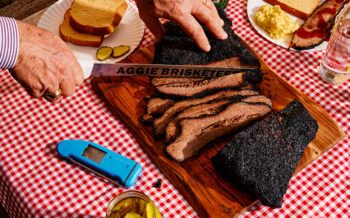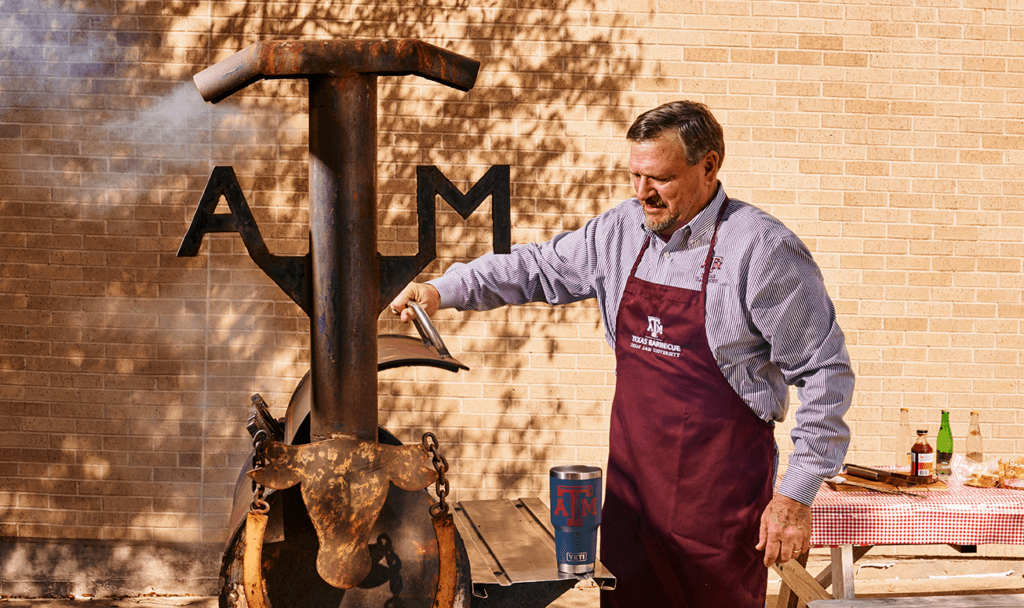[ad_1]

Ray Riley ’79, ’81 has managed the Texas A&M University Rosenthal Meat Science and Technology Center since it opened its doors in 1983.
Texas A&M Foundation
With grilling season in full swing, Texas A&M University Pitmaster Ray Riley — an expert in all things barbecue — gives some pointers for the aspiring pitmaster just getting started.
Riley manages Texas A&M University’s Rosenthal Meat Science and Technology Center and teaches barbecue courses for students at every skill level, including Texas A&M’s uber-popular Barbecue Summer Camp.
“We always tell our students, ‘As long as you know how to cook, you’ll always have friends,’” Riley said.

Ray Riley is one of the “Aggie Brisketeers” along with meat scientists Drs. Jeffrey W. Savell and Davey Griffin.
Texas A&M Foundation
Tips and Tricks
Get a good thermometer.
“You need to accurately measure the temperature of your meat and your pit. With more experience, you’ll tell by time and feel, but it’s best to play it safe when starting out.”
Absorb information.
“Used to, if you had a question, you had to call up an old friend or relative. These days, the internet has just about every answer you need. I also recommend Aaron Franklin’s books.”
Don’t overthink your setup.
“Something as simple and inexpensive as a small pit smoker can hold heat just fine. You don’t need a pellet grill or some big ol’ pit on a truck trailer to make good barbecue. I wouldn’t recommend a gas cooker, though—it just doesn’t give flavor like wood or charcoal.”
Get high on the hog.
“Everyone wants to make brisket, but a good brisket is hard to master. Making pulled pork out of a Boston shoulder is a lot simpler, and you can work your way up from there.”
Check your grades.
“A higher USDA grade means higher quality beef, but you don’t always have to get USDA Prime. Buy what you can afford.”
Prepare accordingly.
“Preparation depends on what you’re making, but definitely get your pit up to temperature and burn until the heavy smoke clears out before throwing in the meat.”
Go low and slow.
“Some people prefer certain temperatures, but most of the time, I recommend cooking at a nice, low 250 degrees Fahrenheit and making sure you’re in no rush.”
Practice patience.
“If you’re constantly lifting the lid on your smoker, you’re not cooking. Set a timer to check it every hour or so and watch TV, read a book or do some chores. And if anyone asks you when the meat will be done, tell them it’ll be done when it’s ready!”
Learn more about the Rosenthal Meat Center.
[ad_2]
Source link






